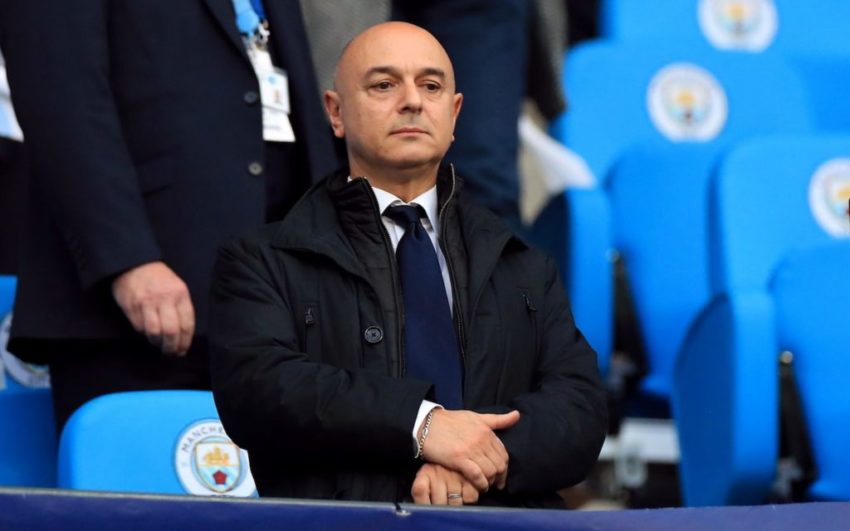The chief executive of the Premier League, Richard Masters, has defended the furloughing of staff, claiming clubs have been acting with “restraint” as he warned of a “very real threat” of some top-flight sides going bust because of the coronavirus crisis.
In a striking letter to the parliamentary select committee for digital, culture, media and sport, Masters describes losses at an “unprecedented level” – potentially more than £1bn – across top-division English football, and an uncertain future for the game as a whole. “Not only is our industry facing losses now,” he writes, “we must base our plans on full recovery being some distance away.”
In a response to questions posed by the chair of the DCMS committee, the Tory MP Julian Knight, Masters writes: “The furlough scheme announced by Government is meant for the whole economy, including many enterprises which might be regarded as providing entertainment or otherwise dependent on elite talent. We do agree with you that restraint needs to be shown by all and we and our Clubs are doing just that. Individual Clubs will need to make these decisions based on their own forecasts as each Club will have its own unique position.”
Negotiations are continuing between Premier League clubs and their players over the possibility of deferring or cutting players’ wages. But four clubs – Newcastle, Tottenham, Bournemouth and Norwich – have applied to use the government’s furlough scheme for employees, which has met with widespread public disapproval. On Monday, Liverpool reversed a decision to furlough staff and apologised after fierce criticism.
However Tottenham, run by Chairman Daniel Levy (pictured) have said that for every match day the club do not play there is a loss of £5million in direct revenue and number of staff directly employed are simply not required at the current time and like any business they have to make sensible and prudent decisions on how best to manage the current situation.
In his letter Masters paints a broader and bleaker picture of the state of football. Last week, the Premier League advanced £125m of funding to the EFL to help clubs lower down the pyramid stay afloat. Similar problems could soon await top-flight clubs too, Masters says.
“Like much of the productive economy in the UK, we are losing revenue at an unprecedented level,” he writes. “We face a £1 billion loss, at least, if we fail to complete Season 2019/20 and further losses going forward if the seriousness of the pandemic deepens and extends into the future … Ultimately, the very heavy losses that we face will have to be dealt with or else Clubs and other enterprises who depend on football for income will go out of business. We do not say this lightly, or to justify Clubs’ decisions; it is a very real threat.”
Masters said the league, its clubs and players generated more than £3bn a year for the exchequer, including more than £1bn from players’ salaries. He argued that it was “crucial therefore that we as an industry can ensure our future financial viability”.
Masters’ warning was echoed on Tuesday by the chairman of the Football Association, Greg Clarke. Speaking to the FA council, Clarke – who has agreed a 25% cut to his salary – said football stakeholders must “share the pain” if an existential threat to the game is to be avoided. “Football faces economic challenges beyond the wildest imagination of those who run it,” he said. “The pandemic will be followed by its economic consequences and all business sectors will suffer.
“We face the danger of losing clubs and leagues as finances collapse. Many communities could lose the clubs at their heart with little chance of resurrection. In the face of this unprecedented adversity, all the stakeholders within the game from players, fans, clubs, owners and administrators need to step up and share the pain to keep the game alive.”
Clarke also said Premier League clubs were “not immune from the impact” and added: “We must have a plan to ensure that English football is not decimated should this season be lost and next season blighted.”
Knight issued a combative response to Masters’ letter. “It is frankly laughable to think that clubs are showing restraint on use of government money to pay non-playing staff and flies in the face of public opinion,” he said. “Liverpool has listened to fans, done the right thing and changed its mind. It is time for the Premier League to stop defending the indefensible. They should be working out a way to carry on paying the wages of club staff without resorting to taking money from the government scheme.”
Knight is one of a number of Conservative politicians to have criticised football clubs and players in recent days. Remarks made by the health secretary, Matt Hancock, were widely held to have complicated negotiations over wage cuts, and on Monday the culture secretary, Oliver Dowden, called on players and clubs to “support the National Effort”.
These comments are increasingly proving counterproductive with clubs and players, however. A senior executive, from a Premier League club speaking to Business Matters, criticised Knight’s latest remarks and questioned why football has been singled out rather than other industries who have not faced as much criticism for furloughing staff, especially as per annum they contribute far more than many UK companies in terms of employers income tax, national insurance and corporation tax paid to the exchequer.


